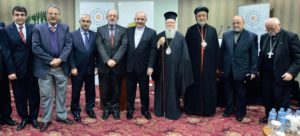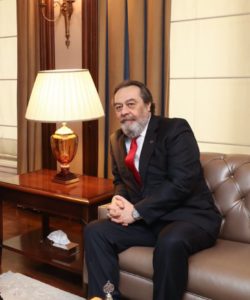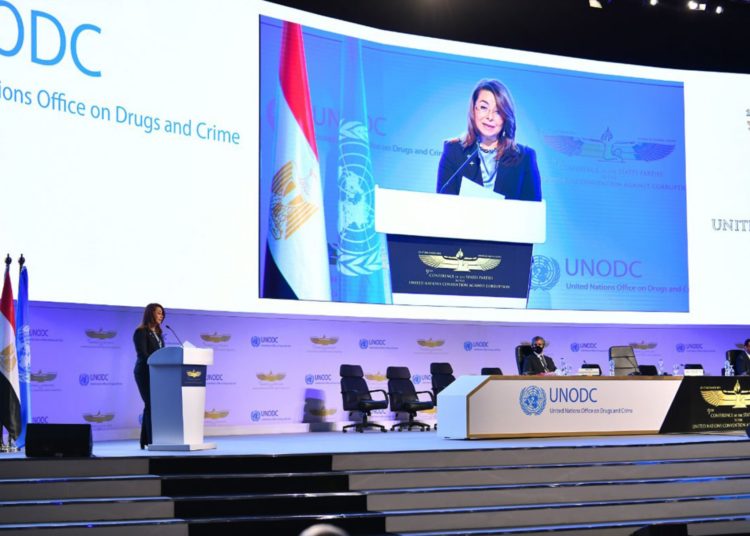Abdullah Bozkurt/Stockholm
After having summarily and arbitrarily shut down well over a thousand nongovernmental organizations (NGOs) in Turkey since 2016, the Islamist government of President Recep Tayyip Erdoğan has now started going after NGOs in other countries.
The ugly campaign to crack down on NGOs abroad was most recently manifested at the United Nations, where Turkish diplomats filed a series of objections to the participation of eight NGOs as observers at an anti-corruption conference, citing unfounded accusations of terrorism.
The unprecedented campaign drew the ire of many countries including members of the European Union, which objected to Turkey’s unjustified move to block NGOs that are not even present in Turkey. Ankara dug in its heels and eventually managed to keep the prominent NGOs from participating in the UN event.
It all started when the UN began preparations for the 9th session of the United Nations Convention against Corruption (UNCAC) Conference of the States Parties (CoSP) that was to be held in Sharm El-Sheikh, Egypt, in December 2021. Many NGOs around the world expressed interest in participating in the event as observers, and the secretariat circulated the names of the NGOs.
Among dozens of NGOs, nine faced objections, with Turkey challenging the participation of eight, according to conference president Harib Saeed al-Amimi of the United Arab Emirates. Turkey submitted two letters on September 28 and November 24 declaring its opposition to the participation of the eight NGOs.
The letter submitted in September by Ambassador Ahmet Muhtar Gün, permanent representative of Turkey to the United Nations Office at Vienna, to the UN listed the following organizations as linked to what he claimed to be terrorism: Access Info Europe (Spain), Alliance on Civic Initiatives Promotion (Kyrgyzstan), Central Asia Research Institute on Corruption and Money Laundering (Kyrgyzstan), Expert Forum (Romania), Integrity Initiatives International (US), The Good Lobby (Italy), Transparency International (Georgia) and Eurothink- Center for European Strategies (North Macedonia).
The objections were reviewed by the conference bureau on December 13-14, 2021 during which time the bureau recommended upholding the objection for the participation of the Libyan Transparency Association because the NGO had no legal status in Libya.
The letter by Turkish Ambassador Ahmet Muhtar Gün, who accused prominent NGOs of terrorism:
The remaining objections to the eight NGOs that were filed by Turkey posed a challenge to the bureau because none of them are actually located in Turkey. The bureau deferred the matter for further discussion with hopes of finding a compromise. But Turkey refused to budge, prompting criticism from other UN member states, which accused Turkey of targeting NGOs in other countries without probable cause or justification.
A Turkish diplomat at the meeting claimed his country was fighting terrorism and that the scrutiny of the eight NGOs was warranted and justified. The EU member states as well as the US, UK, Australia and several others highlighted Turkey’s negative role in preventing NGOs attendance at the conference. Speaking on behalf of 41 member states, including EU countries, a Slovenian diplomat said nongovernmental organizations played a key role in supporting the global fight against corruption. It was therefore crucial that the conference engage with a wide range of civil society organizations and that diverse voices be heard, in order to strengthen the implementation of the convention and to ensure that states parties were capable of addressing current and future challenges in the fight against corruption.
The principles of inclusivity and transparency were at the core of the conference and its work, she said, expressing concern that the work of the conference was being undermined by blocking the accreditation of nongovernmental organizations that had a proven track record of working on issues demonstrably relevant to the objective and purpose of the convention.
A US diplomat also criticized Turkey, saying that there was no adequate proof to bar NGOs from participating in the event and expressed regret that a number of states parties had used the conference session to further interests that were outside the scope of the convention. One of the NGOs opposed by Turkey was Integrity Initiatives International, an NGO based in the US, and the American diplomat described the NGO as a strong advocate for global anti-corruption efforts. “Its voice at the conference would provide a meaningful contribution to collective dialogue,” he added.

A European Union diplomat then warned that Turkey’s objections set a dangerous precedent as none of the nongovernmental organizations were based in the country that was objecting to them. He rejected the Turkish government’s accusations of terrorism against the NGOs and underlined that the European Union had serious concerns in relation to the objection of Turkey to the participation of the eight nongovernmental organizations.
A Romanian diplomat also leveled criticism of Turkey, rejecting Ankara’s claims of a Romanian NGO called Expert Forum having links to terrorism. He said Turkey did not provide any substantiating evidence to support its accusations, which went against the assessment of the Romanian government with regard to the targeted NGO. “Such an unfounded accusation could put individuals and entities at risk,” he said.
Letter from the EU delegation in Vienna that refuted Turkish claims of terrorism with respect to the eight NGOs:
After a series of debates, Turkey continued to object to the participation of the eight NGOs and succeeded in keeping them out of the UN event.
This was not the first time Turkey went after NGOs at the UN. In 2017 upon a special request from Turkey, the Committee on Non-Governmental Organizations canceled the consultative status at the UN Economic and Social Council (ECOSOC) for leading charity group Kimse Yok Mu, the Journalists and Writers Foundation (GYV) press freedom advocacy group and the Turkish Confederation of Businessmen and Industrialists (TUSKON), all affiliated with the Gülen movement, a critic of the Turkish government.
Without presenting any evidence linking these NGOs to any violence or terrorism and simply citing the fact that they had been shut down by the government with decree-laws under a state of emergency and therefore had ceased to exist, Turkish diplomats at the UN asked the committee to remove their consultative status with the UN. None of the NGOs were provided an opportunity to defend themselves against the serious charges or make their case before the committee.
UN report details Turkey’s objections to some foreign NGOs attending the anti-corruption conference and a flurry of criticism of Turkey from other countries:
Turkey shut down 1,325 associations and foundations
The GYV moved its operations out of Turkey and registered itself as an NGO in the United States following an unprecedented crackdown on NGOs in Turkey. Yet that did not help the GYV from losing its official status at the UN due to the Turkish government’s lobbying campaign.
The United States representative requested more information from Turkey with regard to the NGOs and asked for information and evidence on allegations that the NGOs were linked to terrorism. She also said a response from the NGOs must be sought before taking any action on their status at the ECOSOC. Turkey did not provide any evidence and asked the UN to not contact to any of these NGOs.
Turkey has a seat on the Committee on Non-Governmental Organizations that expires this year.

Among the 1,325 associations and foundations in Turkey shut down on charges of terrorism in 2016 and 2017 by government decrees that are not subject to any effective judicial or legislative scrutiny are health, sports, education, charitable, unionist and other advocacy groups that apparently have nothing to do with terrorism or any other crime, such as the Anatolia Medical Ontology Foundation, the Gastrointestinal Oncology Foundation and the Health for Everyone Association. They were targeted because of unconstitutional profiling by the government, targeting critics, minorities, opponents and anybody else who is unwilling to toe the line of the Islamist government in Turkey.
The Gülen group came under a crackdown in the aftermath of the December 2013 major corruption investigations that incriminated the inner circle of then-prime minister and current President Erdoğan, including several government ministers.
Erdoğan dismissed the corruption allegations, sacked the prosecutors and police chiefs and hushed up the graft probes. He also described the investigations as “a plot by the Gülen movement to topple the government” and launched a crackdown on the group. The movement, led by Turkish Muslim scholar Fethullah Gülen, has long been critical of the Erdoğan government due to its corruption and Ankara’s aiding and abetting of radical jihadist groups in Syria and Libya.
NGOs and individuals who criticized the Erdoğan government for pervasive corruption were viciously targeted, with many facing criminal investigations and malicious prosecutions on bogus terrorism charges.
The Romanian government submitted a letter to the UN vouching for the Expert Forum NGO and rejecting accusations leveled by the Turkish government:












